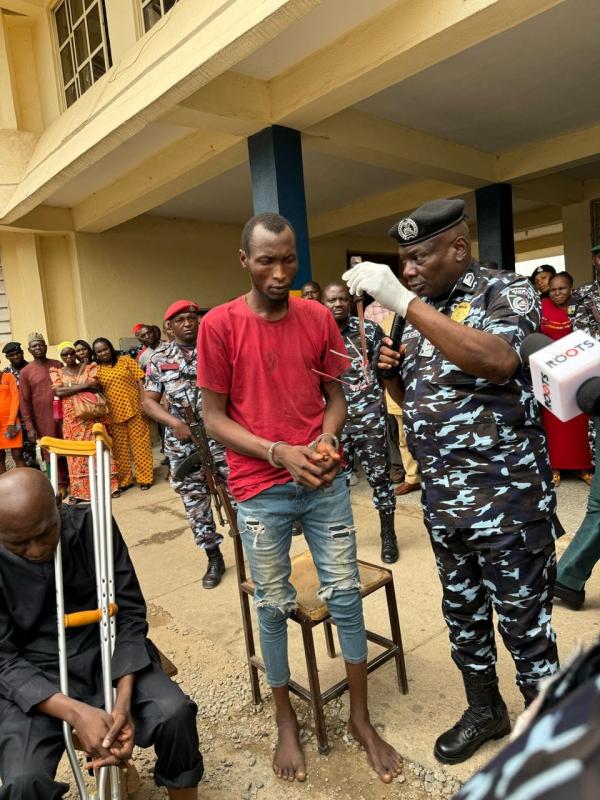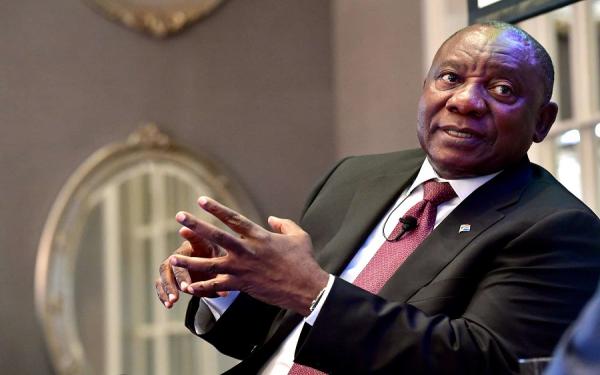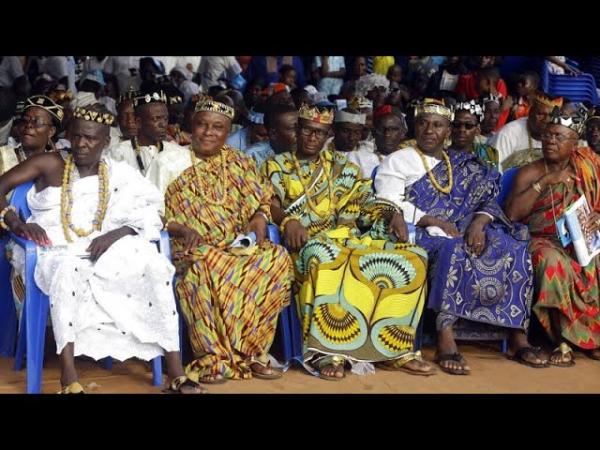
As 2019 general elections draw closer by the day , fears, being expressed by political watchers, are predicated on the fact that the current Electoral Act provides for a window period of only one week within which the Commission (INEC) could organize and conduct re-run elections.
A run-off is an election conducted when the first election fails to produce a clear winner for the position of president, or governor. This can happen when the candidate with the highest votes does not have the required votes spread in the affected states.
Article 134 (2) of the Nigerian Constitution stipulates that a presidential candidate will be duly elected after attaining both the highest number of votes cast, and having received at least a quarter of the votes at each of at least two-thirds of the 36 states and the Federal Capital Territory (FCT).
The section reads: “If no candidate satisfies the requirement, a second election will be held between the two leading candidates within seven days from the pronouncement of the result.” said.
For some obvious reasons many analysts strongly believe that a run-off is not an impossibility, especially for the presidential election, with heightened fears that the Nigerian constitution has not given the Independent National Electoral Commission (INEC) enough latitude to run a successful re-run within the stipulated period.
Controversy dogs Electoral Act amendment
With the 2019 general elections a stone’s throw away, INEC had on March 9, 2017, announced that the presidential election would hold on February 16, 2019, while governorship and states assembly elections would be conducted on March 2, 2019.
But the Presidency and the National Assembly were locked in controversy over the sequence of elections, a clause that trapped the whole process of tinkering with the Amendment Act 2010, which would have fine-tuned some issues to make the 2019 elections more credible.
While analysts believe there will ba lacuna that will cast doubt on the integrity of the 2019 elections if the two arms of government do not suspend the mutual suspicion between them, INEC is seen as the biggest victim of the acrimony because it has been trapped for now, making its preparations for a possible re-run uncertain.

Both chambers of the national assembly, though dominated by the APC, amended the order of the election. The proposed sequence of elections would make the National Assembly election come first in 2019, followed by governorship, and state houses of assembly, and presidential last.
In April, the Abuja Division of the Federal High Court nullified the amendment of Section 25 of the Electoral Act, which was passed in February by the National Assembly. The court, presided by Justice Ahmed Mohammed, ruled that only INEC had the powers to create an election template for the country.
The judge also ruled that any attempt by the national assembly to amend Section 25 as done by the legislature, would first require an amendment of the constitution. On his part, President Muhammadu Buhari on March 13 refused assent to the bill, after it was forwarded to his office. He had said the amendments if allowed to pass violate parts of the constitution.
But it seems proponents of the issue at the National Assembly are undeterred. After both chambers of the National Assembly stepped down the bill that sought to introduce election sequencing in the country on April 18, a new bill to that effect resurfaced in the House of Representatives on Thursday, May 31.
In the House, a new bill on the same subject matter sponsored by Kingsley Chinda was introduced. The amendment rejected by President Buhari showed that elections into the 469 Senate and House of Reps seats would be conducted first to be followed by elections of governors and members of states Houses of Assembly, while presidential election would come last.
Curiously, the House adopted some of the provisions of a bill that allows the use of smart card only and prohibited the manual register for accreditation during the 2019 general elections. They agreed that elections could be postponed in areas where the smart card reader fails to function.
At the rate they are going, both chambers are determined to effect the various amendments within the shortest possible time and re-transmit same to President Buhari for assent, the outcome of which is definitely unpredictable.
Analysts express mixed views
Among those who believe the 2019 Presidential election may go into a re-run is renowned columnist and National Chairman of the Abundant Nigeria Renewal Party (ANRP) Tope Fasua.
“I see the 2019 presidential election going for rerun. I was the first person in this country who predicted that that election would be hung especially at the presidential level. I wrote articles on this; I looked at the way things are going, and especially with the mismanagement of optics by the present government which is lucky now to be having upspring in the prices of the crude oil and able to pay over a few things.
“But while the prices of crude oil were down and they had no new ideas, they had lost a number of states which they would not be able to get 25 per cent in 2019. All the states in the South-East, five of them, forget it! All the states in the South-South with the exception of maybe Edo State, they can’t get even 25 per cent. A couple of states in the South-West would drop as well. Maybe Lagos, but I’m not sure if the Tinubu effect would come to play this time around; people are just very angry”, Fasua said.
He further said: “Sometimes the anger may be misguided; sometimes you may say they are expecting too much, but the president said ‘I would not fund peoples’ kids fees abroad’ and the next thing you are seeing are his children leaving university from there. And he also said people should not travel abroad to take care of themselves, and then he jumps onto the next plane to go there to take care of himself , and because of that impunity, everyone goes for that same level of impunity.”
“So there’s going to be a couple of states dropping off in the South-West, and a couple of states dropping out in the North-Central or what you call the Middle Belt area in which case, if that happens Buhari would not be able to form government at first vote and it would go into a runoff,” he said.
A former chairman of INEC, Professor Attahiru Jega, has also expressed fears over the possibility of a constitutional crisis in the event the 2019 presidential election runs into second balloting.
Jega who spoke during the 2018 democracy day lecture in Abuja said it took God’s intervention to avert such a crisis during the last general elections.
Jega said: “I kept giving examples of some aspects of existing legal framework, which could have created constitutional crisis if not for God’s intervention in 2015. For example, a constitutional provision that requires the electoral commission to conduct a run-off election within seven days is impossible in this country but that is what the constitution says.
“Why is it impossible? By the time the electoral commission announces result, it would have been two days and then if you take out those two days, you will be left with five days to prepare for the next run-off election.
“Meanwhile, after elections, INEC normally demobilizes staff; security personnel and you cannot demobilize them and get them in polling units within five days. In 2015, we had very serious apprehensions in electoral commission because of that constitutional provision, because of a run-off because we cannot do it within the constitutional provision.”
Stressing the need to accelerate the process of having a new legal framework for INEC ahead of the 2019 elections, Professor Jega said: “We should be mindful of the ECOWAS protocol that we have signed, which requires all signatories to ensure that any amendment to the electoral legal framework is concluded at least six months before a general election, ideally it should be at least one year before general elections.
However, Professor Jibrin Ibrahim, Director, Center for Democracy and Development said with proper planning, INEC can be able to conduct a rerun even within the period currently provided for in the Electoral Act without problems.
“I will be good to change what is currently provided for in the Electoral Act to give more time but a rerun is not a problem if there is proper planning on the part of INEC. He, however, pointed out that logistics issues such as printing of ballot and getting them everywhere as well as financial challenges could pose a problem to INEC.”
The National Coordinator of the Independent Service Delivery Monitoring Group (ISDMG), Dr. Chima Amadi, said the electoral umpire would not be taken by surprise. “The provision in the constitution does not give INEC enough room to maneuver but I think what this INEC does is to prepare for contingencies because the one week is not enough to start preparing and reprinting and all that, amounting to billions of naira, because of that one-week window.
“So the constitutional provision is unrealistic; it’s supposed to give room for at least two months so that if it happens that there would be a runoff, INEC can make preparations. But let’s get this thing right, they always prepare for contingencies. But the framers and re-framers of the constitution should envisage a situation whereby INEC should be given enough window to maneuver and avoid waste,” he said.
Auwal Musa Rafsanjani, the executive director Civil Society Legislative Advocacy Centre (CISLAC), said the executive and legislative arms of government should be held responsible in the event that the country is thrown into a constitutional logjam arising from a rerun in 2019.
Describing concerns over the possibility of a constitutional crisis due to anticipated rerun in 2019 as legitimate, Rafsanjani said there was still time for both arms of government to effect the necessary constitutional amendments that could address the problem when it arises.
“There is still time if there is the political will. 2019 is very contentious and both the national assembly and the executive must address grey areas to avoid constitutional logjam. But if they fail to do so and it happens the two arms must be held responsible”, Rafsanjani said.
There is no cause for alarm –INEC
The Independent National Electoral Commission (INEC) has allayed fears of a logjam, saying the Commission has been preparing for any eventuality. Spokesman of INEC Chairman, Rotimi Oyekanmi, said: “Section 134 of the 1979 Constitution of the Federal Republic of Nigeria (as amended) defines the procedure for electing the President. For a candidate to be duly elected, he or she must: (i) Have the majority of votes cast at the election; and (ii) Have not less than one-quarter of the votes cast at the election in each of at least two-thirds of all the states in the federation and the Federal Capital Territory.
“However, when no candidate meets the conditions to be declared winner, the constitution provides that a rerun be conducted within seven days. There is already a proposed amendment to change this provision of 7 days to 21 days, which is now awaiting the President’s assent. The proposed amended was informed by the realization that seven days might be insufficient to prepare for another (presidential) election in terms of its sheer logistical requirements,” he said.





















